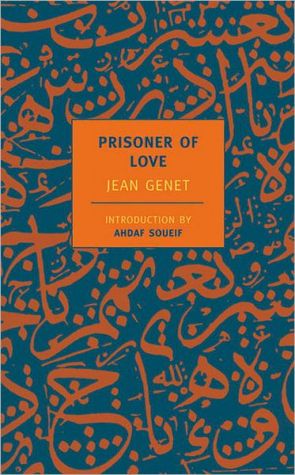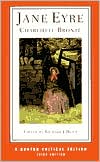Prisoner of Love
Starting in 1970, Jean Genet—petty thief, prostitute, modernist master—spent two years in the Palestinian refugee camps in Jordan. Always an outcast himself, Genet was drawn to this displaced people, an attraction that was to prove as complicated for him as it was enduring. Prisoner of Love, written some ten years later, when many of the men Genet had known had been killed, and he himself was dying, is a beautifully observed description of that time and those men as well as a reaffirmation of...
Search in google:
Starting in 1970, Jean Genet—petty thief, prostitute, modernist master—spent two years in the Palestinian refugee camps in Jordan. Always an outcast himself, Genet was drawn to this displaced people, an attraction that was to prove as complicated for him as it was enduring. Prisoner of Love, written some ten years later, when many of the men Genet had known had been killed, and he himself was dying, is a beautifully observed description of that time and those men as well as a reaffirmation of the author's commitment not only to the Palestinian revolution but to rebellion itself. For Genet's most overtly political book is also his most personal—the last step in the unrepentantly sacrilegious pilgrimage first recorded in The Thief's Journal, and a searching meditation, packed with visions, ruses, and contradictions, on such life-and-death issues as the politics of the image and the seductive and treacherous character of identity. Genet's final masterpiece is a lyrical and philosophical voyage to the bloody intersection of oppression, terror, and desire at the heart of the contemporary world.Publishers WeeklyReflecting Genet's sympathy for the outcast and his personal revolt against the established order, this dense, episodic montage records the years the Frenchman spent with the Black Panthers in the U.S. in the early 1970s and with Palestinian soldiers in Jordan and Lebanon until his death in 1986. Genet glorifies two male-dominated societies--the Panthers and the PLO--that recall the all-male worlds of his youth in reform school, the army and prison and strains to compare two ``virtual martyrs,'' neither possessing any territory of their own. Part anti-Zionist tract, part memoir and philosophical discourse, this uninhibited cascade of images and associations is less a political document than a map of Genet's mental landscape. (Apr.)
\ Publishers Weekly - Publisher's Weekly\ Reflecting Genet's sympathy for the outcast and his personal revolt against the established order, this dense, episodic montage records the years the Frenchman spent with the Black Panthers in the U.S. in the early 1970s and with Palestinian soldiers in Jordan and Lebanon until his death in 1986. Genet glorifies two male-dominated societies--the Panthers and the PLO--that recall the all-male worlds of his youth in reform school, the army and prison and strains to compare two ``virtual martyrs,'' neither possessing any territory of their own. Part anti-Zionist tract, part memoir and philosophical discourse, this uninhibited cascade of images and associations is less a political document than a map of Genet's mental landscape. (Apr.)\ \ \ \ \ Library JournalAt the time of his death in 1986, Genet had in manuscript form an account of his stay with the guerrilla armies of the Palestine Liberation Organization during the early 1970s and 1980s. Available for the first time in the United States, this dense and difficult book is suffused with the deathbed recollections of Genet's personal experiences, dreams, digressions forward and backward in time, rumor and hearsay, fact and fiction, which loosely coalesce and whose overall effect is impressionistic rather than straightforwardly informative. What appeals most is Genet's vivid exposition, which relies on metaphorical imagery rather than logical argument to make its point. This book is a biography of a people fated to struggle against unpopular world opinion and overwhelming odds, a very personal portrait of the Palestinian guerrilla movement seen from the viewpoint of a committed social rebel. A fine introduction by Edmund White helps put the book into the context of Genet's personal and political aesthetic. Recommended primarily for larger collections or where the subject or author is already represented.-- Jeffery Ingram, Newport P.L., Ore.\ \ \ Kirkus ReviewsSaint Genet's posthumous last book, a semi-surreal record of years spent with the Black Panthers in the US and with Palestinian soldiers in Jordan and Lebanon. With his celebrated literary career long abandoned, Genet (1910-86), a homosexual ex-convict and castoff son of a whore, sought a strange kind of sainthood he could never achieve, one that embraced thieves and traitors. He began involving himself with marginal political groups in the late 1960's; these groups, he felt, kept him wrapped in the outcast state that he felt most warmed by. But however great his sympathies, he never surrendered his intellectual freedom and saw gaps in the groups' vague political programs. He loved, rather, individual fighters and here lists their virtues as proof of his love. As Edmund White says in his brilliant introduction, "Love reconciles Genet's feelings that everyone is of equal value and that each person is priceless....Emotions live on and only the people who entertain them die. `The happiness of my hand in the hair of a boy another hand will know, already knows, and if I die this happiness will go on.' " For fun, Genet accepted an invitation to spend a few days with the Palestinians—and stayed nearly two years. He tells no story here, leaps from one land to another while telescoping space and time, giving us perhaps the most intimate picture of terrorism ever written. Among the Panthers, terror is spectacle and theater, and what change the group brings about in fighting Nixon and white imperialism is through poetry. "At the beginning of 1970 the Party still had both the suppleness and rigidity of a male sex organ: and it preferred erections to elections." The crazy logic of thePalestinian phenomenon offers a broader, bloodier canvas as Genet writes under medical notice of his imminent death and seeks life in his nightmares and memories. Unfinished, provisional, inspired—and it may be updated when the original manuscript is found. Ringing with eloquence and intelligence.\ \








